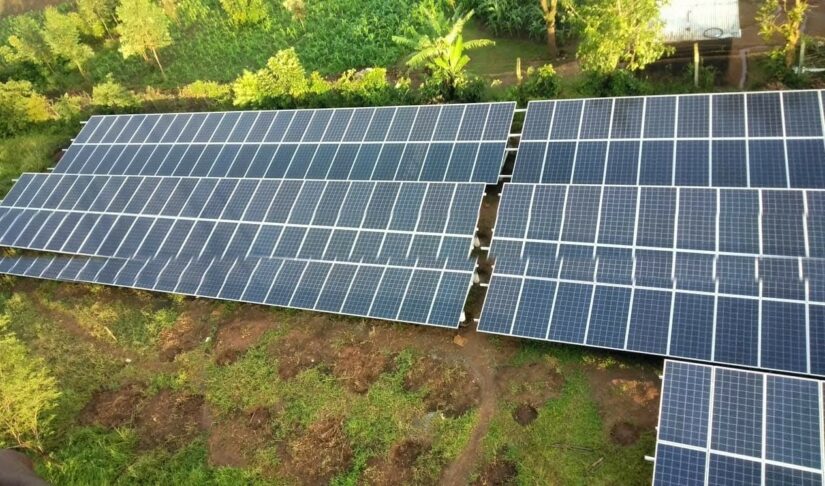
In this part of our series Co-benefits Stories, Lydia Kwamboka Onditi told us how the introduction of a solar mini grid improved people‘s lives on Ringiti Island, Kenya. For this series, we have asked energy professionals that have participated in our trainings for their thoughts and experiences on co-benefits of renewable energy in their country.
“Renewable energy has overtime proven to be beneficial to Kenya’s economy. Most of the country’s electricity is produced from hydroelectricity and geothermal energy. The costs of transmission has been prohibitive, and many rural areas are not connected to the grid. Most of the rural population is still dependent on the use of Kerosene lamps as their source of light. This is not only unhealthy for the users because of increased respiratory diseases, it also affects the environmental pollution leading to adverse effects on climate change.
The use of renewable energy has a lot of social and economic benefits to a country. Take the example of solar mini grids that were installed in Ringiti Island in Homabay county: until 2018, the island’s people had no reliable source of electricity. They were dependent on the use of kerosene, petrol and disposable batteries. Ringiti Island’s main economic activity is fishing. With no electricity, most of their fish spoiled and the fishermen were forced to sell them at low prices that amounted to losses. With the introduction of a solar mini grid, many businesses opened, leading to increased employment of the local community’s members, hence reducing the poverty level.
Taking Ringiti Island’s success story into consideration, the government can scale up the process of rural electrification, as this will lead to enhanced economic growth in the country.
Facing the COVID 19 pandemic, the currently approved vaccines require cold storage which is limited in most rural areas which run short on power supply. The ministry of health could promote the use of solar powered freezers in such areas. This will have both a social effect as more people will be vaccinated which will decrease the spread of the virus, as well as an economic effect as more people will be able to work and thus effectively lead to an overall growth of the country’s economy.”

(© Lydia Kwamboka Onditi)
Based on insights of the COBENEFITS research group, the Renewables Academy (RENAC) currently conducts trainings in Turkey, Kenya, South Africa and Mexico. Participants learn about co-benefits of renewable energy in climate change mitigation, tools to quantify and communicate social and economic opportunities and policies and instruments to mobilise them.